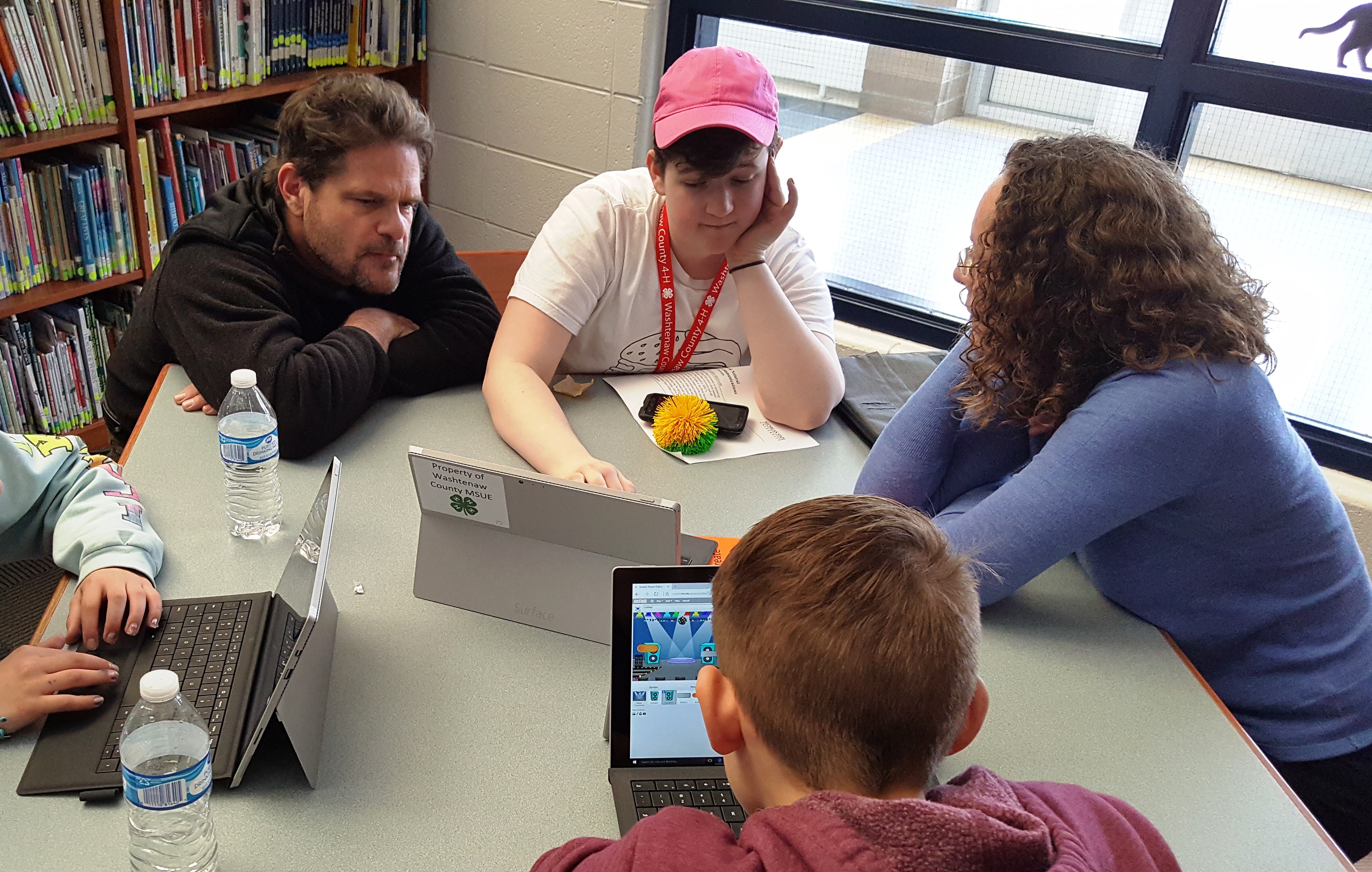Microsoft has a long history of national nonprofit partnerships, where we support organizations focused on youth, digital skills and youth leadership from a strategic and local perspective. While many of our partnerships are primarily focused on urban youth, we realized we needed to partner with organizations that were beyond the “usual suspects.” For example, Microsoft Philanthropies is supporting the National 4-H Council — the largest youth development nonprofit in America, serving 6 million youth across the U.S. — in providing technology training in rural communities, ensuring those communities can maximize the benefit of broadband access. In September, 2017, Mary Snapp, Corporate Vice President of Microsoft Philanthropies, joined the National 4‑H Council Board of Trustees, a 21-member board that is focused on significantly increasing investment and participation in Cooperative Extension’s 4‑H programs.
Locally, my colleague Donna Bank-Hoglen and I have had initial meetings with several 4-H leaders in the metropolitan Detroit area. One of those local partnerships is the Washtenaw County MSU (Michigan State University) Extension Club. Here is a great story from Sheri Montoye, Program Coordinator for 4-H. It’s a great reminder that all of our Youth — both urban and rural — need access to the resources that will help them build 21st century skills to succeed.
— Shelley Stern Grach, Director of Civic Engagement
In this age of technology and advancement we sometimes move so quickly that we cannot fathom the idea of pausing to ask ourselves, “What if?”
Last fall Washtenaw County, Michigan 4-H teens were among eight 4-H communities across the US invited by The National 4-H Council and Microsoft to pause and ask themselves, “What if?” The 4-H teens are recipients of a community engagement grant that is part of a partnership between The National 4-H Council and Microsoft to equip young people with the digital skills and resources they need to make a positive impact in their communities.
During the 4-H Tech Changemaker orientation in Redmond, the teens were asked: “What if you were in charge of deciding which issue in your community should be addressed?” and, “What if technology could be a solution to that issue?”
The Tech Changemaker teen leaders, Joel and Suhjin, quickly agreed on teen mental health as their issue. Their goals are to create, what they call, a peer web of support, and identify a toolbox of resources for teens dealing with mental health issues in their school community.
Local teens have a strong sense that their peers are suffering and looking for support. What Joel and Suhjin didn’t know until they began researching this topic was that the county teen suicide rate is currently at a 40 year high. They also didn’t know that according to a Common Sense Media and SurveyMonkey survey 47% of parents today think their children are addicted to smart phones. Instead of simply blaming technology and society for teen problems and doing nothing, the teens regularly meet and engage with local stakeholders to tackle this issue in their community.
To begin building that web of peers as well as increase understanding of new technology the teens invited additional teens to get involved with planning a 2-hour event that was held on April 10, 2018 called “Teen Tech Café”. The event was set up in a local High School Media Center to allow for both the exploration of new technology and provide a safe teen-centric after school space.
Ten youth participants used Surface Pro’s to explore various technologies including Lego EV3 robotics, 3D graphics programs, Scratch, Python, and also some phone-centric activities using “Text, talk, act,” a Creating Community Conversations initiative led by National Institute for Civil Discourse which engages people in impactful conversations on mental health. The local library technology department used the first 15 minutes to demonstrate the many uses of a Surface Pro. Additionally, the Senior Center president (who retired from IT work at The University of Michigan) and the Mayor were in attendance to observe the day’s events.
“The event for us, is only a starting point. We know that we can change this into something much more impactful. This is something to build off of,” said Suhjin, one of the teen leaders working on this project since it began in fall 2017.
The teens felt this event was a success, and it was made possible as a result of a donation of more than 20 Surface Pro devices from Microsoft. The donated Surface Pro’s will be used for technology learning opportunities across the county. There is a lot more to do on this project, but participants had a good experience and advanced the local conversation around both teen mental health and technology.
4-H Tech Changemakers will explore replicating this idea in other school districts in the county and are already working closely with a local senior center located near the High School to host an ongoing teen space for cross-collaborative tech education in the future. The teens are also working on an electronic survey of teens and adults in the area to gather ideas on addressing teen mental health issues using technology as a solution.
 Sheri Montoye is the Michigan State University Extension Washtenaw County 4-H Program Coordinator. She has worked as county 4-H staff for a total of 11 years, and was herself a Michigan 4-H member from 1981 – 1990. Email: [email protected]
Sheri Montoye is the Michigan State University Extension Washtenaw County 4-H Program Coordinator. She has worked as county 4-H staff for a total of 11 years, and was herself a Michigan 4-H member from 1981 – 1990. Email: [email protected]

